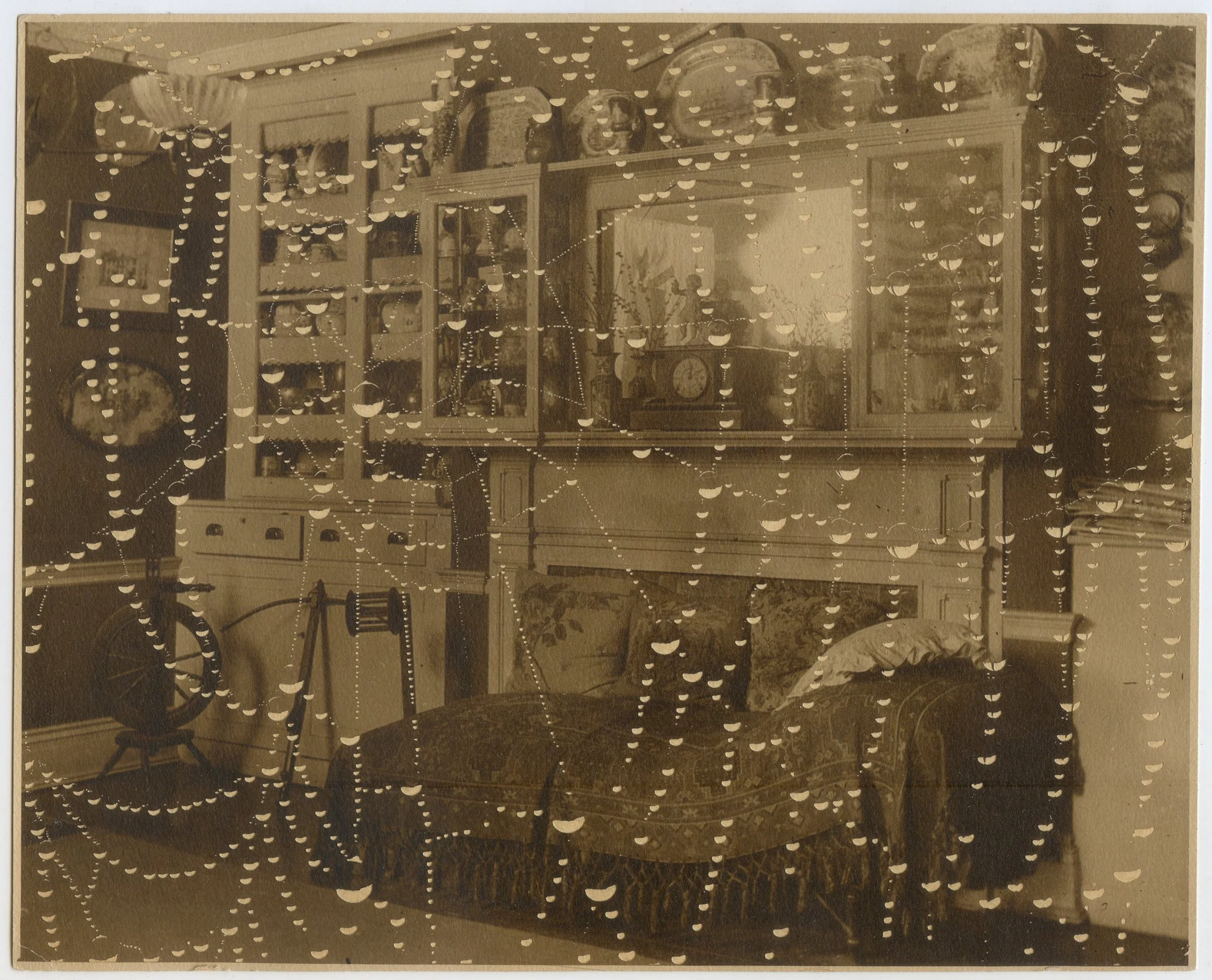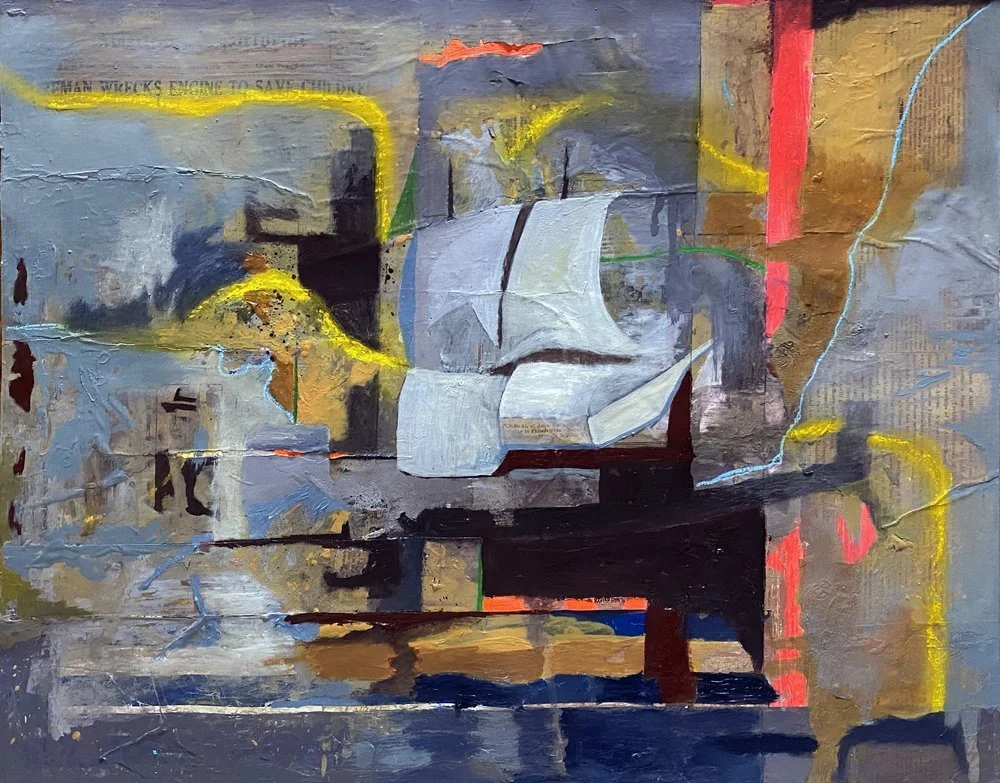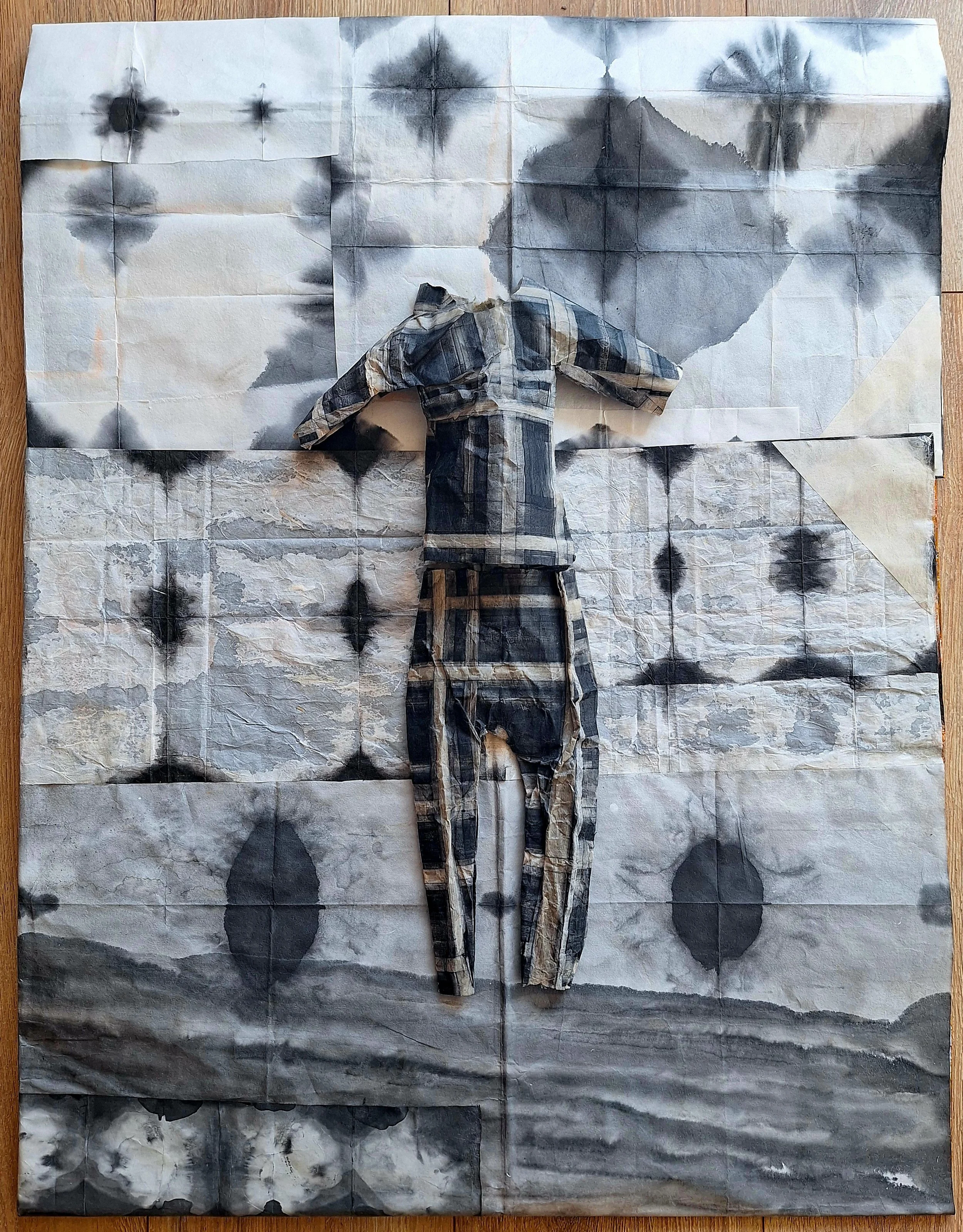“On Bewilderment” and Other Poems
By Mia Ayumi Malhotra
On Bewilderment
with a line from Fanny Howe’s essay “Bewilderment”
What I remember: the bright lights of the birthing ward, the scramble of nurses and respiratory techs rushing around the room as I lay motionless on the bed, drugged and disoriented.
A nagging sadness, that I cannot remember the exact moment of her birth.
Why I have been talking to doulas and midwives and doctors and respiratory therapists and nurses, and even a kindly reproductive psychiatrist in Austin.
Maybe it's not facts I'm after so much as form. A container for grief, for this birth—its lapses and failures.
I felt defeated as I pushed. I wanted to take my laboring self out of that room, away from all those shouting strangers. I remember the light in my eyes.
A complete failure in the magnet, the compass, the scale. A collapse in being.
Perhaps why I gasped where am I? where is she? when birth came for me. When what I really wanted to know was what is happening to me? and will this ever stop? and will I survive?
Nothing irradiates the self more powerfully than birth. The body, a howl in the dark.
The lie about birth is that it is a singular, isolated occurrence. That once you are done with it, it has done with you.
When perhaps it is more of a bloom or smear.
Long after the act is complete, birth lives on in our bodies, persisting like an enchantment—or a bad dream, depending.
Hayv Kahraman - 6 Bends (2020), Oil on panel, 60 x 104 inches
© Hayv Kahraman. Courtesy of the artist and Jack Shainman Gallery, New York.
Image description: The painting features two symmetrical rows of figures, with three figures in each row. The figures’ faces are rendered in fine and distinct lines; their bodies are rendered in subtle tones. The figures are in acrobatic back bends; their limbs overlap with one another. The faces of the top three figures are right-side up, and the bottom three are upside-down. All six faces have dark eyes and brows, red lips, and a neutral facial expression.
Bad Birth: A Retrospective
with lines from Audre Lorde, Deidre Cooper Owens, and others
“Perhaps the past is always trembling inside the present, whether or not we sense it.”
—Doireann Ní Ghríofa
A poetics of haunting means a return to haunted places. It means choosing to tell the story from the beginning.
Women drugged without consent, strapped onto the operating table or tied into labor cots to keep them from clawing themselves.
Newborns dragged from their mothers’ bodies, skulls pincer-gripped by metal forceps. Sluggish from morphine, comatose or unable to breathe.
When I talk about birth in America, I am not talking about infants in starched linen, cooing in the delivery ward.
We operate in the teeth of a system for which racism and sexism are primary, established, and necessary props of profit.
History—that trauma which will not forget us.
How many mothers, after giving birth, feel like a ghost in their own story?
Trapped in its unresolved ongoingness, birth becomes a fugue, a story that resists its own ending.
We need to develop our ability to identify the truth claims of obstetrics for what they are and for what they seek to resist or deny about women.
Not long ago, laboring women were shaved, given enemas, restrained with leather cuffs, and sedated with morphine and scopolamine.
Twilight sleep, widely used in American hospital birth beginning in the early 1900s, caused delirium, vivid hallucinations, and psychosis. It also induced memory loss.
How many of our mothers gave birth this way? Eyes wrapped in gauze, wrists rubbed raw from a struggle they would not remember.
In some ways, childbirth has the hallmarks of a good story (exposition, rising action, climax, and resolution), but just because a baby has been delivered doesn’t mean the story is resolved.
You can build a good story around a bad one, but the ugliness persists—spreading underground, out of sight.
Maybe this bad story wants you to tell it over again, trying to get it right.
We cannot fight old power in old power terms only. The only way we can do it is by creating another whole structure that touches every aspect of our creation, at the same time as we are resisting.
Hayv Kahraman - Pigeons (2021), Oil on linen, 85 x 52 inches
© Hayv Kahraman. Courtesy of the artist and Jack Shainman Gallery, New York.
Image description: The painting depicts figures arranged against a tan background. The figures are in abstract, acrobatic poses. Their bodies and limbs collectively form the shape of a large Y, with one figure piled on top of another. The figures hold paper scrolls in their hands. A baby is attached to the right leg of the top figure. A white envelope is taped to the baby’s stomach. Three carrier pigeons surround the figures and carry paper scrolls too.
On Collapse
with lines from Claudia Rankine
I once shared a table with a person whom I will not name, who looked at me in a way that made me feel foreign even to myself and asked why if I was raised overseas I spoke such good English.
Why do you feel comfortable saying this to me?
The space suddenly stripped of its easy, familial feeling. The rest of the family cutting strawberries in the kitchen.
A constriction in the throat, an ugly orange buzzing in the room. As if someone had pushed the mute button, the children’s voices suddenly silent in the other room, the scritch-scritch of the dog’s paw on glass sliding door weirdly without sound.
Certain moments send adrenaline to the heart, dry out the tongue, and clog the lungs.
Some people are born into the I and feel it is their birthright to say I this and I that, but others are made to believe that I doesn’t matter, especially in relation to They, which means our coming into selfhood is tentative and sometimes belated.
Why, when the moment collapsed, taking with it my sense of I-ness, I felt so powerless.
In infancy, we come to see ourselves by mimicking the actions of others. Why a baby waves with her palm facing her face—because that is how others acknowledge her. Or why, recognizing her likeness in a photo, she says, that’s you!
Why, when another swallows up the space, I can no longer see my self. Blood hammering in my ears; air sucked from the room.
My only response was to become forced and brittle, asserting my edges but failing to exist as anything but surface glare.
The sharpness of her voice, the glazed unknowingness of her affect.
The moment’s betrayal, like an egg crushed on the face. Yolk smeared across the mouth, in the hair, ugly and shaming.
Why do you feel comfortable saying this to me?
The rest of the family, slicing fruit at the counter. Listening but not speaking.
Mia Ayumi Malhotra is the author of Mothersalt (Alice James Books, forthcoming 2025); Notes from the Birth Year, winner of the Bateau Press BOOM Chapbook Contest; and Isako Isako, a California Book Award finalist and winner of the Alice James Award, the Nautilus Gold Award, and a Maine Literary Award. She holds creative writing degrees from Stanford University and the University of Washington, and her work has received the Hawker Prize for Southeast Asian Poetry and the Singapore Poetry Prize. She is a founding member of The Ruby SF, a gathering space for women and nonbinary artists.
*
Hayv Kahraman was born in 1981 in Baghdad, Iraq, and now lives and works in Los Angeles. A vocabulary of narrative, gender fluidity, and dynamics of non-fixity found in diasporic cultures are the essence of her visual language and the product of her experience as an Iraqi refugee/come émigré. Through her work Kahraman explores the body as methodology to complicate normative perceptions of what it means to be human today.
If you’ve enjoyed reading this article, please consider making a donation. Your donation goes towards paying our contributors and a modest stipend to our editors. Singapore Unbound is powered by volunteers, and we depend on individual supporters. To maintain our independence, we do not seek or accept direct funding from any government.











“Like the man who wears a vest saying negotiator in a hostage situation, I want one that says prioritizer.” Three poems by Satya Dash.